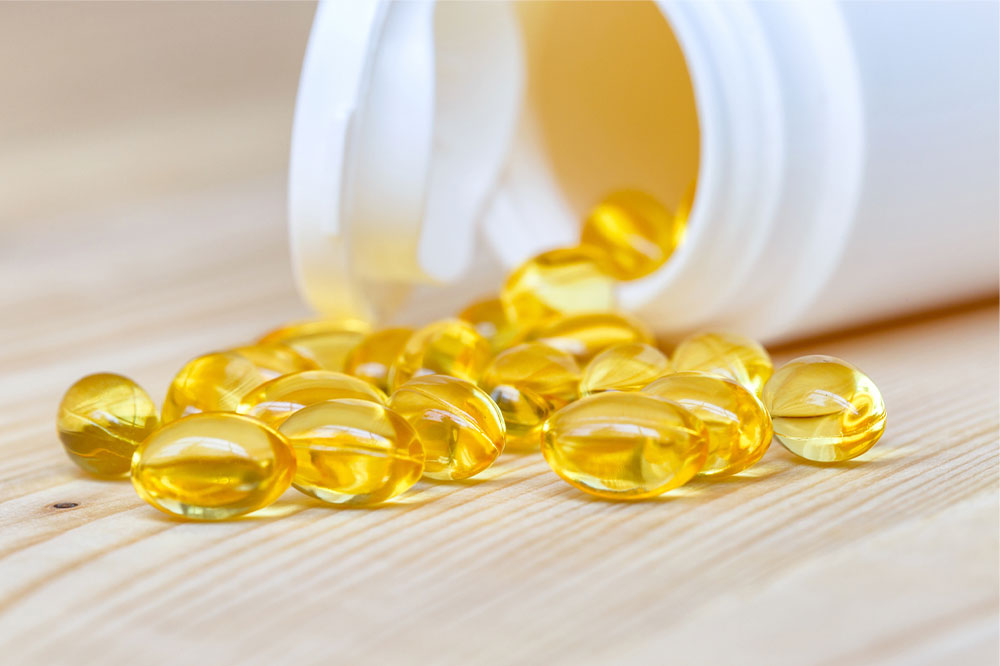8 Key Vitamins for Managing Anxiety
Just like the body’s physiological processes, the mind also functions 24×7. Consequently, mental health requires as much attention as physiological well-being. Further, approximately 31% of the country’s population may deal with an anxiety disorder at some stage of life, making it a prevalent mental health issue. One can manage the condition through treatment, however, besides seeking timely diagnosis and therapy, replenishing the body with certain vitamins can help one deal with the disorder.

What is an anxiety disorder?
Anxiety disorder is characterized by a sense of worry, fear, or apprehension occurring over extended periods of time. These symptoms can trigger or are often accompanied by panic attacks, hyperventilation, and sweating. Anxiety attacks may occur in response to stressful events, such as an interview, a difficult situation at home or work, or even social situations. The primary difference between feeling nervous or anxious and having an anxiety disorder is that the latter interferes with daily functioning. Anxiety disorders may be classified into different types:
- Generalized anxiety disorder (GAD)
- Separation anxiety
- Panic disorder
- Phobias
- Social anxiety disorder
Vitamins for anxiety management
Today, several psychotherapeutic interventions can help one deal with anxiety disorder. Cognitive behavioral therapy (CBT), exposure therapy, and systematic desensitization are some popular approaches utilized to help people manage the disorder and its symptoms. Additionally, a few positive lifestyle changes, including adding vitamin-rich food to daily meals, can help expedite the healing process. Here are some of the key vitamins for anxiety management:
Vitamin B1
Also called thiamine, this vitamin has been known to help treat several forms of anxiety disorder. Thiamine doses of 250mg per day are prescribed to patients with the disorder, who may exhibit comorbid symptoms such as chronic fatigue, anorexia, depression, nausea, and chest and abdominal pain. In one study, 73% of participants with anxiety disorder displayed significant clinical improvement upon being administered thiamine. Thiamine is found in sizable concentrations in foods such as beans, pork, fish, green peas, yogurt, eggs, and certain fortified breakfast cereals.
Vitamin B6
High doses of vitamin B6 have been associated with stress reduction and lower levels of anxiety. Young adults with anxiety and/or depression who received vitamin B6 in high doses for over a month reported feeling significantly less anxious in an experiment. So, it is a good idea to add foods rich in vitamin B6, such as organ meats, tuna, salmon, chickpeas, poultry, dark leafy greens, and cantaloupes, to the daily meal plan when dealing with anxiety symptoms.
Vitamin B3
This vitamin is also called niacin, and its effect has been studied in animals, with the results exhibiting outcomes similar to those of treatment options prescribed for anxiety. Vitamin B3 plays an integral role in the synthesis of serotonin in the body and is recommended at a dosage of 1,000 to 3,000mg per day. Some foods high in this vitamin are poultry, fish, fortified cereals and bread, bananas, legumes, brown rice, and red meat.
Vitamin B5
This vitamin supports the functioning of the adrenal glands, which can help reduce stress and anxiety. So, vitamin B5 may be effective in helping relieve symptoms of mental health disorders. Vitamin B5 is found in food sources such as organ meats, mushrooms, avocados, fortified cereals, broccoli, sweet potatoes, lentils, and soybeans.
Vitamin C
In a controlled study involving students with anxiety, who were administered vitamin C, the participants reported feeling less stressed and anxious at the end of the experiment. Vitamin C helps regulate cortisol, the stress hormone, enhancing mood and proving effective for those grappling with anxiety. Citrus fruits, peppers, Brussels sprouts, cruciferous vegetables, strawberries, and collard greens are excellent sources of this vitamin.
Vitamin B12
Several studies have demonstrated that those dealing with anxiety have low levels of vitamin B12 or cobalamin. The nutrient regulates the production of homocysteine, an essential compound, so its levels may increase in the absence of B12. So, one with an anxiety disorder should have foods such as dairy products (if not lactose intolerant), poultry, eggs, fish, meat, and fortified cereals, as they are good sources of B12.
Vitamin A
Several people with anxiety are found to be deficient in vitamin A. This essential vitamin helps strengthen the nervous system and lower stress levels, facilitating relaxation. According to research, optimally replenishing the body with vitamin A can help those with GAD and panic attacks manage their symptoms better. Typically, beta-carotene, a pigment found in certain plants, converts to vitamin A in the body. So, one should add beta-carotene sources like carrots, leafy greens, red peppers, butternut squash, cantaloupe, and sweet potatoes to the meal plan while dealing with anxiety. Further, liver, eggs, dairy products, and fish are rich sources of this vitamin.
Vitamin D
Deficiency of vitamin D has been associated with elevated anxiety levels. The breakdown of vitamin D in the body leads to the formation of calcidiol, which, studies suggest, plays a role in regulating several neurotransmitters and neurotrophic factors. Increasing exposure to sunlight can help increase vitamin D in the body. Further, foods like fortified orange juice, salmon, swordfish, beef liver, and sardines are packed with vitamin D.


